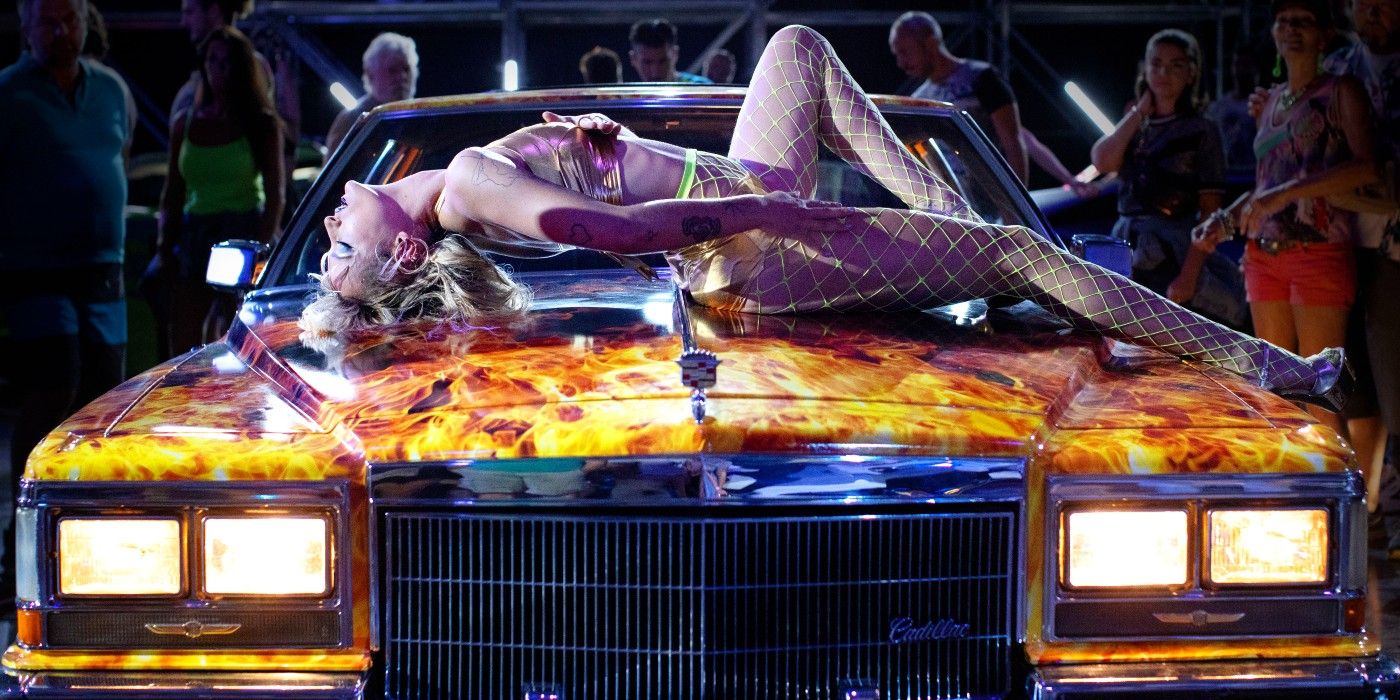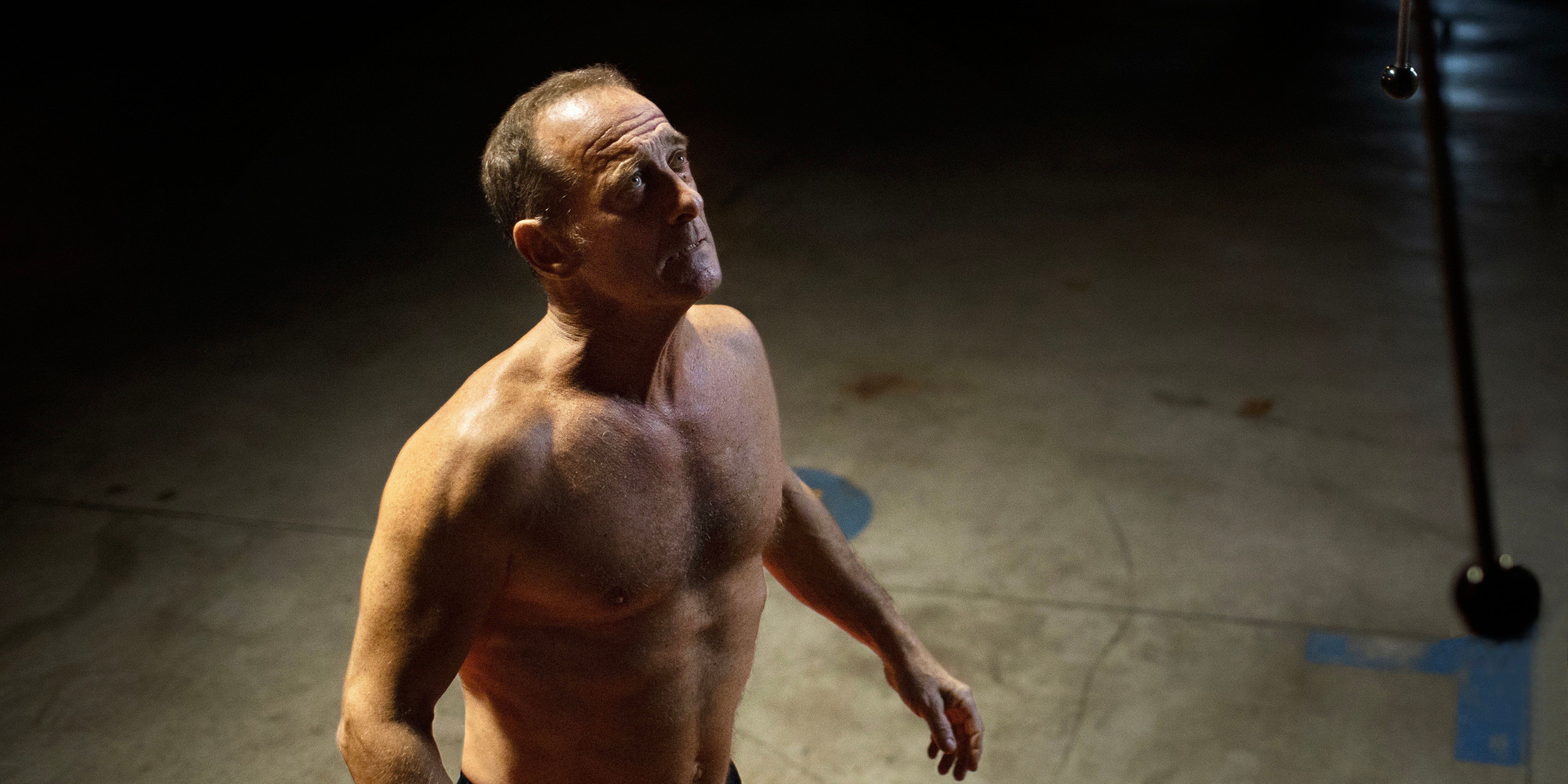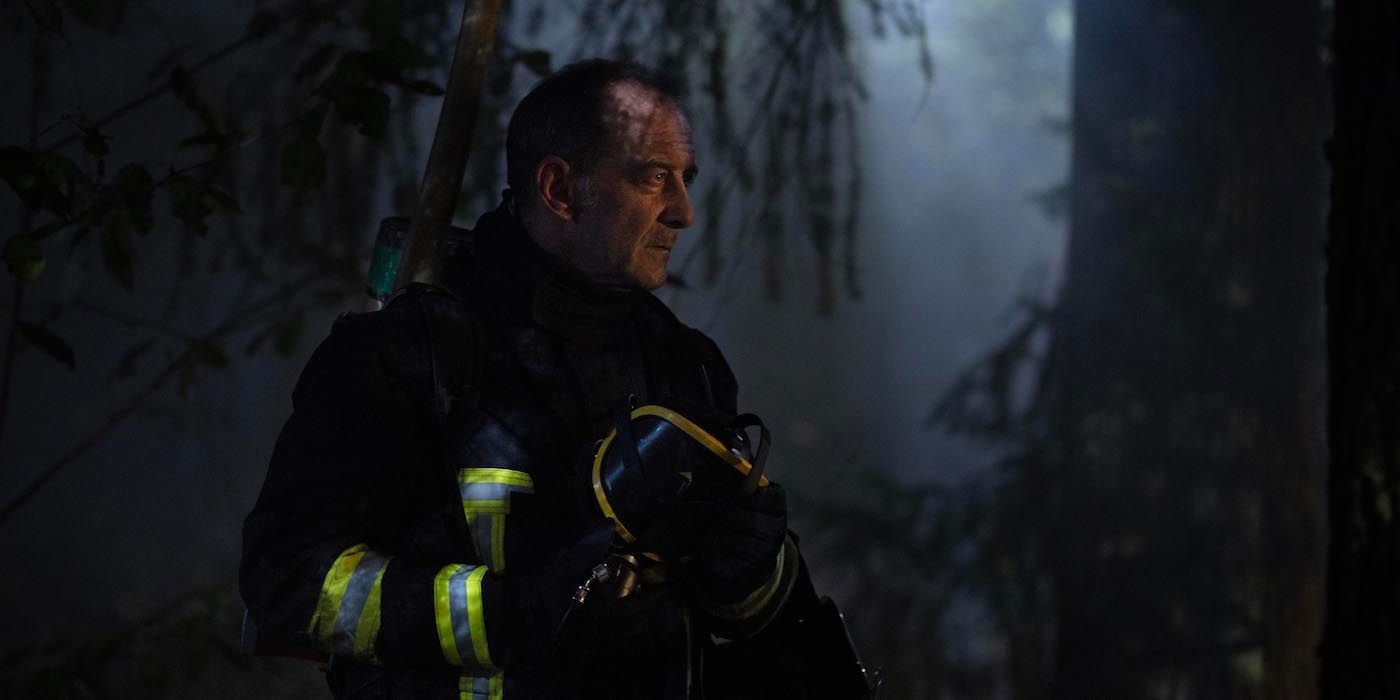Titane Ending Explained: What Exactly Happens in This Wild Movie?
Editor's note: The following contains spoilers for Titane.First, a couple of notes on the format of this piece. To "explain the ending" of Titane, and to imply that such a task would "spoil" the movie implies that the movie exists within the same realm of movies that have traditional, explainable, spoilable narratives. Julia Ducournau's bonkers genre-blender is an experiential film driven by vibes, style, and thematic explorations more than it is a film driven by plot.
Thus, think of this piece as more of an ending exploration than an ending explanation. Yes, we will do our best to lay out, beat by beat, the actual, corporeal "things that happen" at the end of Titane. But more importantly for a film like this, we will do our best to articulate what kinds of feelings and statements all of these abstract, bug-nuts choices bring up. Fasten your seatbelt.

To briefly summarize how we get to our ending tableau: Alexia (Agathe Rousselle) suffered a horrific car accident as a child, one that left her with a titanium plate in her head. This traumatic experience, coupled with her traumatic relationship with her father (Bertrand Bonello), has led to a pair of wild truths about her adult existence: She is a serial murderer, and she is in love with her car. And not, like, in the way I love my Honda Insight because it gets good gas mileage; she fully has sex with her car and becomes pregnant by it. At the same time, she's on the run from the authorities for all of her vicious, serial murderers. When she sees a flyer for a missing boy by the name of Adrien, she disguises herself as him, shaving her head, taping down her breasts, and breaking her nose. Thus, she hides in plain sight with Adrien's father Vincent (Vincent Lindon), a deeply repressed man who is thrilled that "his son" is back despite the obvious truths of "Adrien's" actual identity.
Two ticking clocks emerge: When will Alexia give birth to her car baby, and when will Vincent realize who this person actually is? In Titane's final scene, both clocks ring their alarm, though with unexpectedly rendered results.
Alexia's body can hold this car baby no longer. Her stomach balloons, her skin breaking to reveal a titanium version of a skeleton beneath. Her breasts and genitals begin secreting a kind of motor oil. And all of this happens in front of Vincent, who can no longer believe that this is Adrien, his missing son. But, sweetly, Vincent accepts her actual identity and the truth that she is giving birth. He continues to take care of her in a kind of psychosexual-meets-paternal way, instructing her to lie on the bed and push out her baby. The baby — whom while we don't see fully, we can definitely tell that at least its spine is metallic — arrives. But the experience kills Alexia. As she lies, deceased and deteriorated on Vincent's bed, he holds this new child. His "grandchild." And he promises to take care of it. And the movie ends, and everyone in the audience turns to each other and screams, "Ahhhhh!"

For me, Titane explores some primary, foundational, and somewhat Freudian themes of gender, sexuality, trauma, and parental dynamics (for others, I'm sure it explores many, many other things, and I can't wait to digest everyone's opinions). Alexia's childhood trauma fused a budding, "innocent" interest in cars into something "corrupt" involving sex and violence, her poor relationship with her potentially abusive father sealing her fate. Murder and machinery and fucking and love — all of these things have become one for her, the only multifaceted way she knows how to express herself, the barest glimpse of rationalization for what are a series of pretty damn irrational behaviors. Her body has been pummeled by so many traumas, exacerbated in the present by the male sex creep who stalks her after her show dancing suggestively on her cars, that she only seeks to pursue pleasure and dole out traumas herself, either as survival instincts or pleasure triggers unto themselves.
Her pregnancy by her car, this symbol of a swirling melange of lust and violence and nature and industrialization, presents a tipping point: Will this heightened, ultimate physicalization of all the messy mechanisms of her life break her or heal her? The ending sequence answers this, I think, with a resounding "both." But at first, Alexia tries her best to run headfirst into the "break," going on a sex-and-murder rampage before diving into a potentially calamitous lie.
It's this lie, this prolonged interaction with Vincent, that catalyzes her, and his, simultaneous breaking and healing. Alexia's femininity, either draped on as performance or projected onto by the men who exist near her, often results in her being further traumatized (or doling out traumas in a kind of preventative measure). But when she burrows into a form of performative masculinity for the sake of hiding herself, she finally receives acceptance from a father figure, Vincent. He loves his "son" for who "he is," even as the "feminine truth" of Alexia (and her corrupted pregnancy) threatens and insists upon every turn. As these two share episodes of "classically masculine" paternal bonding, from wrestling to mosh-pit-adjacent raves to steroid injections (the better to be a "buff man" with), Vincent's traumas resurface, causing him to double down on caretaking/owning this new/old child as a symbol of his need for redemption. Both he and Alexia are broken, and he is determined to convince Alexia/Adrien that being his son will heal them both; it's telling that the biggest threats to this odd relationship come from a kind of feminine truth, be it Alexia's pregnancy, Adrien's mom (Myriem Akheddiou) knowing Alexia's actual identity, or Alexia performing a feminine dance for an increasingly uncomfortable male workforce (while also performing masculinity in that she is still presenting as Adrien).

In the end, though, the truth in all its feminine-trauma-as-body-horror splendor and agony bursts through, in the form of a transmogrified body and a humanoid car baby. And both characters, seeing each other as they are, realize that they need each other. Alexia needed a father who cared for her without judgment; Vincent needed to be a father who cares without judgment; and Julia Ducournau needed to tell us this tale of mutual redemption/destruction through a cacophony of wild, violent, sexual, unclassifiable horrors. God bless them all.


التعليقات على الموضوع